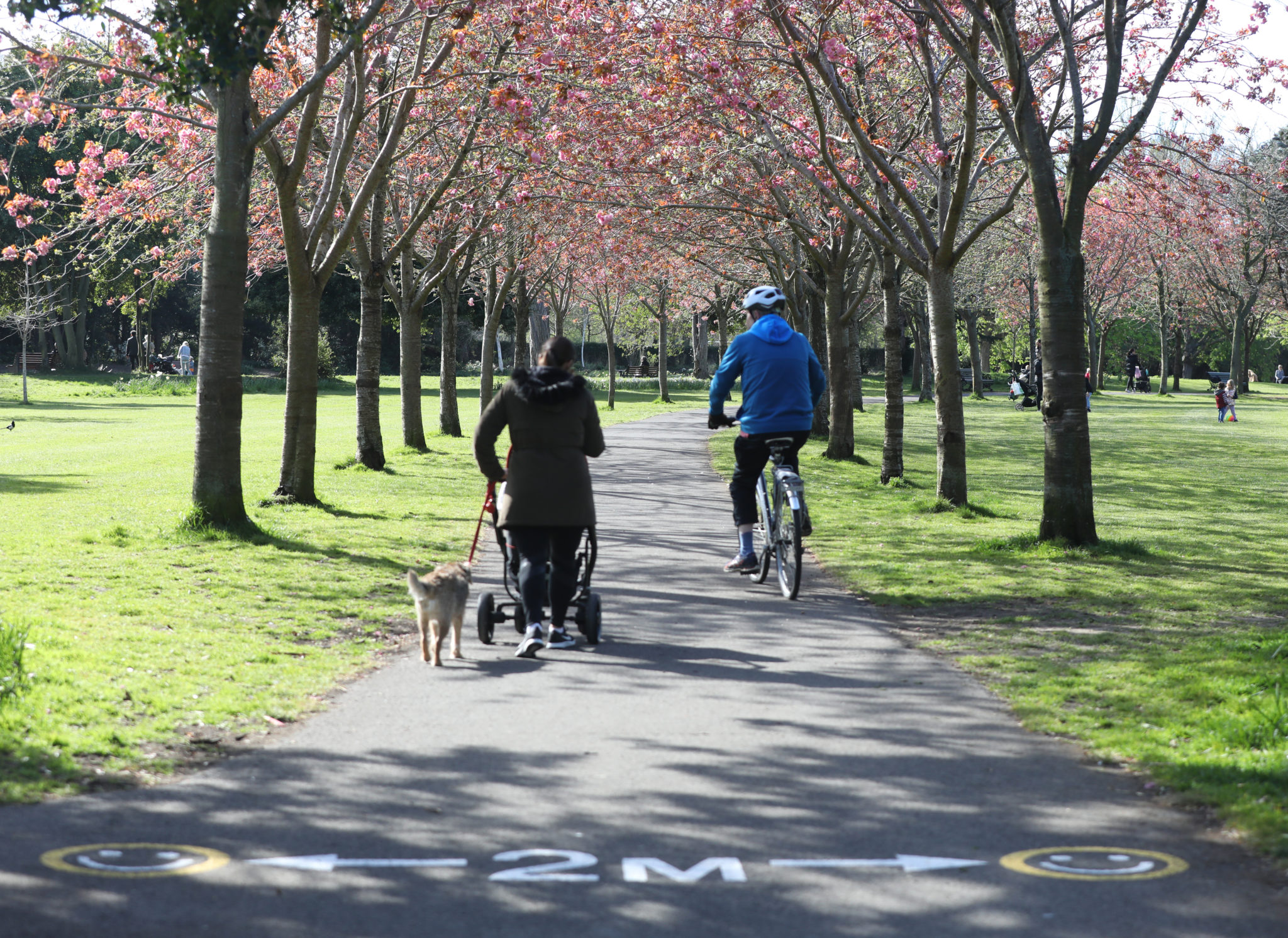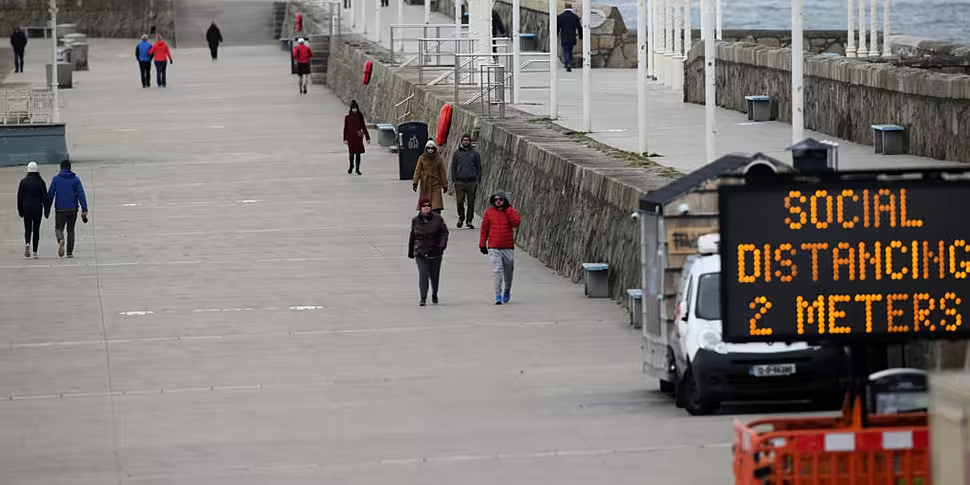A new study has warned that intermittent social distancing measures may need to be in place until 2022.
The paper, published in the journal Science, notes that further outbreaks of the virus are likely in the months after this initial pandemic wave.
It warns that the secondary peak could be larger than the current one if restrictions are viewed as one-time measures and are not followed up in the coming months.
It said that without a vaccine or recognised treatment, “prolonged or intermittent social distancing may be necessary into 2022.”
 People observing social distancing while walking in Herbert Park in Dublin, 07-04-2020. Image: Leah Farrell/RollingNews
People observing social distancing while walking in Herbert Park in Dublin, 07-04-2020. Image: Leah Farrell/RollingNewsMeanwhile, it notes that countries will have to significantly expand their long-term critical care capacity if they do not wish to put in place intermittent restrictions until a vaccine is developed.
“New therapeutics, vaccines, or other interventions such as aggressive contact tracing and quarantine – impractical now in many places but more practical once case numbers have been reduced and testing scaled up – could alleviate the need for stringent social distancing to maintain control of the epidemic,” it notes.
“In the absence of such interventions, surveillance and intermittent distancing (or sustained distancing if it is highly effective) may need to be maintained into 2022, which would present a substantial social and economic burden.”
It calls for long-term studies to establish the extent and duration of immunity to the virus among people who have already contracted it and notes that even if it appears to have been eliminated, another surge could be possible as late as 2025.
The paper finds that the length and duration of immunity will be “crucial” in terms of how the world deals with the virus in the coming years.









